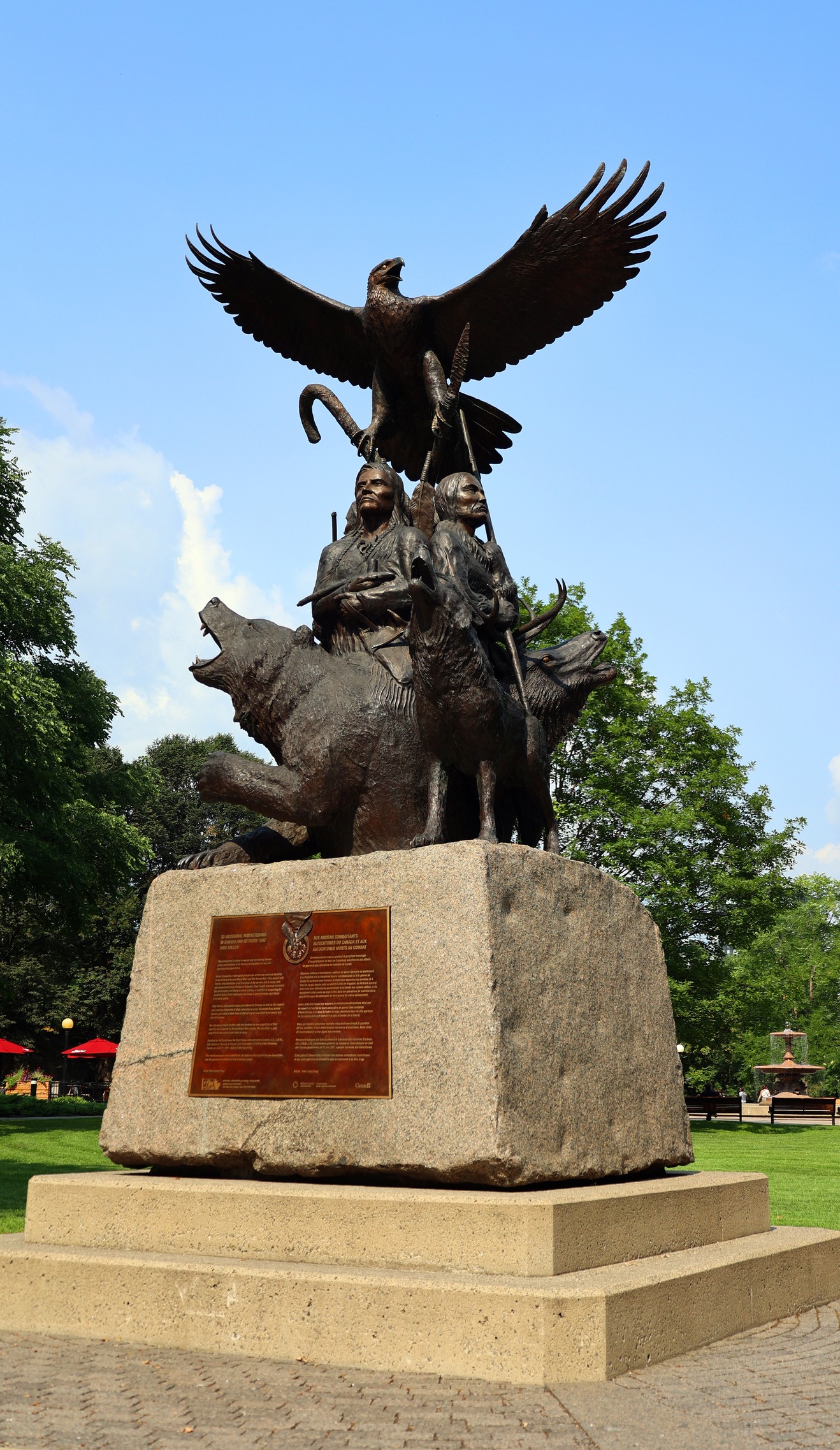“It’s been a labour of love, pain, racism, and happiness!”
Randi Gage, Vietnam era veteran and long-time advocate for Indigenous and women veterans, reflects on her role in establishing November 8th as Indigenous Veterans Day 30 years ago. She was approached by the National Aboriginal Veterans Association in 1992 to designate a day of recognition for Indigenous veterans.
Gage is a speaker with the Memory Project Speakers Bureau.
Founder Thoughts
When three Aboriginal men walked into my office, little did I realize how my life was going to change. I was working at the St. Norbert Foundation, newly married and never expecting to start a national movement. The three men asked for secretarial support, so I assisted them to get their documents ready for filing, wished them well and told them I was going away on a two-week vacation. They left, I wrapped up my week and headed to Riding Mountain for a girl’s retreat.
In the middle of the night the second week, someone banged on my door, scaring the @#&% out of me! There stood two of the men who had asked for help. They came and found me with a message: We can’t do this without you. So, I packed up at daybreak and we headed to Winnipeg through the thickest fog I have ever seen, making it just in time for their meeting. By the end of the meeting, I was elected the new Secretary/Treasurer and was informed I was heading to Ottawa in a month.
Thus began the walk toward the development of Aboriginal Veterans Day (now called Indigenous Veterans Day). In Ottawa, the National Aboriginal Veterans Association was established and I became the Charter Vice-President with a mandate to establish a day of recognition and remembrance for Aboriginal Veterans. That is all I was told, other than it had to be all-inclusive and it had to be done Our Way, not the formal Legion way. They wanted to have an event that allowed them to tell their stories to their community and not have their story changed to fit the mainstream idea of what they did. They wanted each community to do it their way, not under strict formal rules.
Over the years, this ideal has been changed because those who were not there insist that they know what and how it is to be done, and they have changed the day from what we intended. Aboriginal Veterans Day is NOT a second remembrance day, it is a day for Aboriginal Veterans to remember, reminisce, and be recognized by their community. November 8th gave them time to find their uniform, polish their boots, and remember how to march, then head to the November 11th events with their comrades.
The first year was a small event. The second year was a big party in Winnipeg, as the Provincial government had declared November 8th as an officially recognized day on their calendar. A few years later I opened the VAC website and saw the day listed on their site, and I burst into tears. From that time on things have grown to a national day of recognition. The Federal Government acknowledges it, but they do not recognize it as an official day. Hopefully before I walk off, they will make it an official day on the federal calendar.
“A promise made, A promise kept." This is the promise I made to the Veterans in Ottawa at that founding meeting.

 Share on Facebook
Share on Facebook Share on X
Share on X Share by Email
Share by Email Share on Google Classroom
Share on Google Classroom





